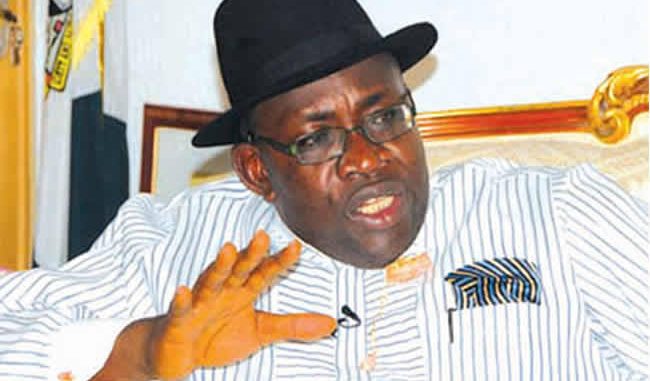
Senator Seriake Dickson, former Governor of Bayelsa State and current Senator representing Bayelsa West has leveled damning allegations against influential figures from Lagos and Abuja, accusing them of masterminding oil theft in the Niger Delta region amounting to $1 billion trimonthly.
Speaking on Channels Television’s “Inside Sources with host, Laolu Akande, on Friday, March 29, 2024, Senator Dickson asserted, “People from Abuja and Lagos are the masterminds and the official system is not ignorant and not innocent.
“The official security system, the official oil system, the official federal system, all of it in its entirety. It’s a criminal, powerful system.”
Senator Dickson condemned the deliberate perpetration of oil theft, emphasizing its devastating impact on communities in the Niger Delta.
He lamented the absence of national values, stating, “Why should a country like Nigeria that has been producing oil, exporting oil for the past 70 years not have a scientific way of metering, recording what leaves, what is pumped, what is sold and what is not sold? And it’s deliberate.
“It’s not a Niger Delta thing; it’s just happening there and it is unfortunate that it has destroyed communities because there is too much illegal money, illegal arms, illicit drugs and it has fueled cultism because people want to get the loyalties of young people to be able to hold territories where hold facilities are.
“They need weapons and young men that are always high on drugs. Do you think a man who slaughters and cuts off a man’s head and dismember him is normal? So, those are people who are actively on drugs.”
Highlighting the complicity of oil companies in benefiting from oil theft, Senator Dickson called for a global consensus to reject stolen Nigerian crude oil, akin to the international response against blood diamonds.
ALSO READ: Time for state police is now — Laolu Akande
He emphasized the need for strong political will to combat the menace of oil theft and associated criminal activities.
The former governor said, “Oil theft has long plagued Nigeria, with staggering volumes of oil being siphoned off by criminal syndicates.
“The Nigerian National Petroleum Company (NNPC) Limited revealed that an illegal oil connection operated for nine years resulted in the loss of approximately 600,000 barrels per day of oil.
“Experts estimate that about 108,000 barrels of crude are stolen daily in Nigeria, leading to significant financial losses for the country.
Senator Dickson highlighted the staggering financial impact of oil theft, stating that Nigeria loses over $1 billion every three months due to oil theft.
He underscored the urgent need for concerted efforts to address the issue and prevent further economic haemorrhage.
“Security agencies have made some arrests and destroyed vessels used for crude oil theft, but the menace persists due to official complicity and lack of transparency in the oil sector, the Senator said.
Senator Dickson stressed the importance of addressing official complicity and ensuring accountability to eradicate oil theft and its associated criminal activities.
In addition to addressing oil theft, Senator Dickson advocated for constitutional reforms to address systemic flaws in governance.
He criticized the 1999 Constitution for creating unchecked executive powers and emphasized the need for accountability mechanisms to hold public officeholders accountable for their actions.
Responding to questions about his tenure as Bayelsa State governor, Senator Dickson refuted allegations of misappropriating local government funds, stating, “For eight years as governor, I never tampered with one naira of local government fund.”
He underscored the importance of transparency and accountability in governance to foster development and progress.
Senator Dickson also endorsed calls for a new constitution and advocated for a parliamentary system of government, citing its compatibility with Nigeria’s cultural and ethnic diversity.
He emphasized the need for quality leadership and investment in education to address the dearth of competent leaders in Nigeria.

